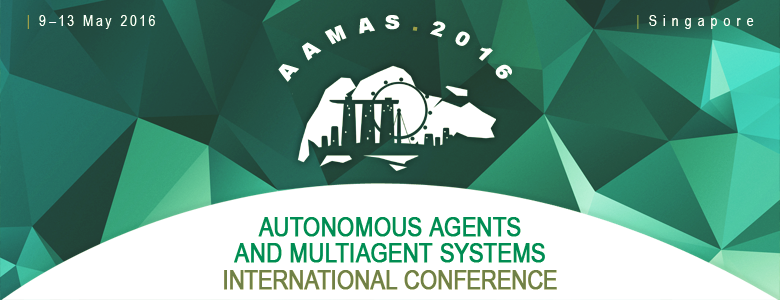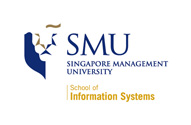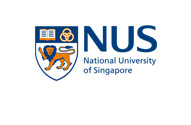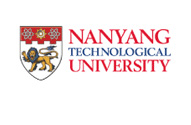- Home
- Accepted Papers
- Accepted Workshops
- Accepted Tutorials
- Conference Proceedings
- Awards
- Paper Award Nominees
- ACM SIGAI Autonomous Agents Research Award 2016
- 2015 IFAAMAS Victor Lesser Distinguished Dissertation Award
- 2016 IFAAMAS Influential Paper Award
- Attending AAMAS
- Registration
- Keynote Speakers
- Conference Program
- Program Booklet
- Presentation Sessions
- Poster Sessions
- Conference Mobile App
- Accommodation
- Visa Information
- Useful Tips
- Venue
- Banquet
- Invitation Letter
- Places of Interest
- Consent Form Bidding data
- Student Information
- Agents Summer School
- Doctoral Mentoring Program
- Scholarship / Travel Support
- Activities & Accomodation
- Robotics Summer School (June 2016)
- Committees
- Organizing Committee
- Senior Program Committee
- Program Committee
- Calls
- 2016 IFAAMAS Award for Influential Papers in Autonomous Agents and Multiagent Systems
- IFAAMAS-15 Victor Lesser Distinguished Dissertation Award
- ACM SIGAI Autonomous Agents Research Award 2016
- Papers
- Paper Submissions
- JAAMAS Presentation Track
- Workshop Proposals
- Tutorials
- Demos
- Exhibitions
- Policies
- Sponsors
Workshops Schedule
| MAY 09, 2016 MONDAY |
Canary1 | Canary2 | Galleria1 | Galleria3 | Sharma | Oriole | Pelican | Toucan | ||
|---|---|---|---|---|---|---|---|---|---|---|
| 08:30-09:00 | Registration | |||||||||
| 09:00-10:30 | CoopMAS | ARMS | COIN | ACAN | ALA | SecMAS | ADMI | |||
| 10:30-11:00 | Coffee Break | |||||||||
| 11:00-12:30 | CoopMAS | ARMS | COIN | ACAN | ALA | SecMAS | ADMI | |||
| 12:30-14:00 | Lunch Break | |||||||||
| 14:00-15:30 | CoopMAS | ARMS | EMAS/COIN joint session |
ACAN | ALA | SecMAS | ||||
| 15:30-16:00 | Coffee Break | |||||||||
| 16:00-17:30 | CoopMAS | ARMS | EMAS | COIN/CARE joint session |
ACAN | ALA | SecMAS | |||
| MAY 10, 2016 TUESDAY |
Canary1 | Canary2 | Galleria1 | Galleria3 | Sharma | Oriole | Pelican | Toucan | Nightingale | Flamingo | ||||
|---|---|---|---|---|---|---|---|---|---|---|---|---|---|---|
| 08:30-09:00 | Registration | |||||||||||||
| 09:00-10:30 | OptMAS | IDEAS | EMAS | TRUST | ABMUS | ALA | TRANSET | MABS | EXPLORE | WEIN | ||||
| 10:30-11:00 | Coffee Break | |||||||||||||
| 11:00-12:30 | OptMAS | IDEAS | EMAS | TRUST | ABMUS | ALA | TRANSET | MABS | EXPLORE | WEIN | ||||
| 12:30-14:00 | Lunch Break | |||||||||||||
| 14:00-15:30 | OptMAS | IDEAS | EMAS | TRUST | ABMUS | TRANSET | MABS | EXPLORE | ||||||
| 15:30-16:00 | Coffee Break | |||||||||||||
| 16:00-17:30 | OptMAS | IDEAS | EMAS | TRUST | ABMUS | TRANSET | MABS | EXPLORE | ||||||
Workshops Details
W1. Seventh Workshop on Cooperative Games in Multiagent Systems (CoopMAS)
The use of cooperative game theory to study how agents should cooperate and collaborate, along with the related topic of coalition formation, has received growing attention from the multiagent systems, game theory, and electronic commerce communities. The focus of much of the current work in this area has been on exploring methods by which agents can form coalitions so as to solve problems of joint interest, make group decisions, and distribute gains arising from such cooperation.
The workshop is intended to focus on topics in cooperation in multiagent systems, cooperative game theory, cooperative solution concepts, coalition formation, and applications.
W2. Trust in Agent Societies (TRUST)
With the growing prevalance of social interaction through electronic means, trust, reputation, privacy and identity become more and more important. Trust is not just a simple, monolithic concept; it is multi-faceted, operating at many levels of interaction, and playing many roles. Another growing trend is the use of reputation mechanisms, and in particular the interesting link between trust and reputation. Many computational and theoretical models and approaches to reputation have been developed in recent years (for ecommerce, social networks, blogs, etc.). Further, identity and associated trustworthiness must be ascertained for reliable interactions and transactions. Trust is foundational for the notion of agency and for its defining relation of acting "on behalf of". It is also critical for modeling and supporting groups and teams, for both organization and coordination, with the related trade-off between individual utility and collective interest. The electronic medium seems to weaken the usual bonds of social control and the disposition to cheat grows stronger: this is yet another context where trust modeling is critical. The aim of the workshop is to bring together researchers (ideally from different disciplines) who can contribute to a better understanding of trust and reputation in agent societies.
W3. Security and Multi-agent Systems (SecMAS)
Many large-scale real-world security problems have been successfully modeled as multi-agent security games, and highly scalable algorithmic solutions with software assistants implementing these have been developed and deployed. While there has been significant progress, there still exist many major challenges facing the design of effective approaches to deal with the difficulties in real-world domains. These include building predictive behavioral models for the players, dealing with uncertainties in games, scaling up for large games, and applications of machine learning and multi-agent learning to security, particularly in the context of repeated or stochastic games. This workshop is structured to encourage a lively exchange of ideas to address the above challenges.
W4. Autonomous Robots and Multirobot Systems (ARMS)
Robots are agents, too. Indeed, agent researchers are sometimes inspired by robots, sometimes use robots in motivating examples, and sometimes make contributions to robotics. Both practical and analytical techniques in agent research influence, and are being influenced by, research into autonomous robots and multi-robot systems.
Despite the significant overlap between the multiagent and robotics research areas, roboticists and agents researchers have only a few opportunities to meet and interact. The recently established robotics track at AAMAS is one such opportunity. The goal of the proposed workshop is to extend and widen this opportunity, by offering a forum where researchers in this area of research can interact and present promising innovative research directions, and new results. The workshop is coordinated and associated with the AAMAS robotics track.
W5. Optimization in Multi-Agent Systems (OptMAS)
The number of novel applications of multi-agent systems has followed an exponential trend over the last few years, ranging from online auction design, through multi-sensor networks, to scheduling of tasks in multi-actor systems. Multi-agent systems designed for all these applications generally involve some form of very hard optimization problems that are substantially different from problems traditionally dealt with in other areas (e.g. industrial processes or scheduling applications).
OptMAS places particular emphasis on distributed constraint reasoning (DCR) approaches, which include the modeling, formulation and solution of DCR problems, including both Distributed Constraint Satisfaction and Optimization Problems. DCR problems arise when pieces of information about variables, constraints or both are relevant to independent but communicating agents. They provide a promising framework to deal with the increasingly diverse range of distributed real world problems emerging from the evolution of computation and communication technologies.
W6. Exploring Beyond the Worst Case in Computational Social Choice (EXPLORE)
Computational Social Choice (ComSoc) is a rapidly developing field at the intersection of computer science, economics, social choice, and political science. The computer science view of social choice focuses on computational aspects of classical social choice and importing ideas from further afield (i.e. classical social choice) into computer science, broadly. While the surge of research in this area has created dramatic benefits in the areas of matching markets, recommendation systems, and preference aggregation, much of the ComSoc community remains focused on worst case assumptions.
As ComSoc evolves in the coming years there will be an increased need to relax or revise some of the more common assumptions in the field: worst case complexity, complete information, and overly-restricted domains, among others. This means going beyond traditional algorithmic and complexity results and providing a more nuanced look, using real-data, advanced algorithms, and human and agent experimentation to provide a fresh and impactful view of group decision making. This goes hand in hand with highlighting the practical applications of much of the theoretical research — as much of the most impactful work in ComSoc does. It also involves looking at more complex preference aggregation settings that help model real world requirements.
W7. Issues with Deployment of Emerging Agent-based Systems (IDEAS)
The IDEAS workshop aims to discuss a set of challenging topics related to the application of intelligent agent and multiagent technologies to solving real-world problems and producing deployed applications. The workshop will serve as both (1) a forum for discussing and sharing cutting edge applied agent research (including a place to discuss difficult challenges necessary to overcome to produce real-world systems, as well as lessons learned from initial deployments), as well as (2) an incubator for Innovative Applications Track research to be presented at future AAMAS conferences.
The IDEAS workshop series is of interest to a broad range of researchers and practitioners of intelligent agents and multiagent systems, including (1) computer scientist academics applying their AI/MAS research to real-world problems (e.g., roboticists, software engineers), (2) interdisciplinary researchers combining AI/MAS with various disciplines (e.g., computer aided education, manufacturing, smart energy, e-commerce, e-healthy, survey informatics, intelligent user interfaces), and (3) engineers and scientists from private companies and public organizations performing agent-based research and development, as well as building real commercial systems.
W8. Multi-Agent-Based Simulation (MABS)
MABS continues to focus on ideas related to the definition of new MAS to address real complex issues, as well as ideas coming from social sciences to MAS as new metaphors to provide insights into MAS theory. Theories, models, analysis, experimental designs, empirical studies, methodological principles, all converge into simulation as a way of achieving explanations and predictions, but also exploration of new hypotheses and conjectures.
The workshop provides a forum for social scientists, agent researchers and developers, and simulation researchers to assess the current state of the art in the modeling and simulation of social systems and MAS, identify where existing approaches can be successfully applied, learn about new approaches and explore future research challenges.
W9. Engineering Multi-Agent Systems (EMAS)
Although much progress has been made in the development of multi-agent systems, the systematic development of large-scale MAS still poses many challenges. Even though various models, techniques and methodologies have been proposed in the literature, researchers and developers are still faced with the common questions: Which architectures are suitable for MAS? How do we specify, design, implement, validate and verify, and evolve our systems? Which notations, models and programming languages are appropriate? Which development tools and frameworks are available? Which processes and methodologies can integrate all of the above and provide a disciplined approach to the rapid development of quality MAS?
EMAS 2016 aims to gather researchers and practitioners in the domains of Agent-Oriented Software Engineering (AOSE), PROgramming Multi-Agent Systems (ProMAS) and Declarative Agent Languages and Technologies (DALT) to present and discuss their research and outcomes in MAS engineering.
W10. Adaptive and Learning Agents (ALA)
Adaptive Learning Agents (ALA) encompasses diverse fields such as Computer Science, Software Engineering, Biology, as well as Cognitive and Social Sciences. The ALA workshop will focus on all aspects of adaptive and learning agents and multiagent systems with a particular emphasis on how to modify established learning techniques and/or create new learning paradigms to address the many challenges presented by complex real-world problems.
The goal of this workshop is to increase awareness and interest in adaptive agent research, encourage collaboration and give a representative overview of current research in the area of adaptive and learning agents and multiagent systems. It aims at bringing together not only scientists from different areas of computer science (e.g., agent architectures, reinforcement learning, and evolutionary algorithms) but also from different fields studying similar concepts (e.g., game theory, bio-inspired control, mechanism design).
W11. Agent-based Complex Automated Negotiations (ACAN)
Complex Automated Negotiations have been widely studied and are one of the emerging areas of research in the field of Autonomous Agents and Multi-Agent Systems. Research has focused on incorporating different technologies including search, CSP, graphical utility models, Bayesian nets, auctions, utility graphs, optimization and predicting and learning methods. The applications of complex automated negotiations could include e-commerce tools, decision-making support tools, negotiation support tools, collaboration tools, as well as knowledge discovery and agent learning tools.
The goal of this workshop is to bring together researchers from various sub-communities of autonomous agents and multi-agent systems to learn about each other's approaches to the complex negotiation problems, encourage the exchange of ideas between the different areas, and potentially fosters long-term research collaborations to accelerate progress towards scaling up to larger and more realistic applications.
W12. Agent Based Modelling of Urban SystemS (ABMUS)
Modern cities have become complex self-organising socio-technical systems. As such, their future is unpredictable beyond broad demographic and land use trends. This uncertainty creates a serious challenge for traditional urban planning as social, economic and land use dynamics dynamically interact at a pace never experienced before.
Spatial micro-simulation and agent-based modelling (ABM) techniques can be used to simulate the actions and interactions of autonomous agents with a view to assessing their effects on the system as a whole. The advantage of such techniques is to allow for the modelling of socio-demographic heterogeneity and the dynamic feedback between urban planning and social responses.
This workshop aims to bring together researchers interested in building large scale agent based urban simulations to discuss issues, techniques and approaches relevant to this effort. We are especially interested in innovative and robust geo-statistical methods for multi-agent-based models.
W13. Coordination, Organizations, Institutions and Norms in Agent Systems (COIN)
The pervasiveness of open systems raises a range of challenges and opportunities for research and technological development in the area of autonomous agents and multi-agent systems. Open systems comprise loosely coupled entities interacting within a social space. These entities join the social space in order to achieve some goals that are unattainable by agents in isolation. However, when those entities are autonomous, they might misbehave and, furthermore, in open systems one may not know what entities will be active beforehand, when they may become active or when these entities may leave the system. The challenge in the design and construction of open systems is to devise mechanisms that foster interactions that are conducive to achieving individual or collective goals.
Coordination, organizations, institutions and norms are four key governance elements, and the COIN workshops constitute a space for debate and exploration of these four elements for the design and use of open systems. We seek to attract high-quality papers and an active audience to debate mathematical, logical, computational, methodological, implementational, philosophical and pragmatic issues related to the four aspects of COIN. Of particular interest for the workshop are those papers that articulate a challenging or innovative view.
SPECIAL JOINT SESSION WITH COLLABORATIVE AGENTS RESEARCH & DEVELOPMENT: CARE FOR DIGITAL EDUCATION (CARE)
"CARE for Digital Education" aims to discuss computational models, social computing, and intelligence applied to Digital Education. We are motivated by a recent OECD Report (2015), which points out that despite many years of effort in bringing computing technology to learning practices, there is no appreciable improvement in student achievement. How can Computation Intelligence and Agent-based technology help with that?
We aim to bring together experiences around the utilisation of innovative models of ICT in education, particularly in the fields of: content provisioning and intelligent repositories of learning objects; content composition and recommendation systems for composing personalised and adaptive digital content; content delivery and intelligences for content adaptation, personalised tutoring, and reaction to student behaviour; new forms of automatic assessment, and models to understand the impact of social behaviour, and; learning analytics, models to analyse and understand student behaviour, models to predict student behaviour, and so on.
W14. Agent & Data Mining Interaction (ADMI)
The ADMI workshop provides a premier forum for sharing research and engineering results, as well as potential challenges and prospects encountered in the respective communities and the coupling between agents and data mining. The workshop welcomes theoretical work and applied dissemination aiming to: (1) explore the integration of agents and data mining towards a super-intelligent system; (2) discuss existing results, new problems, challenges and impact of integration of agent and data mining technologies (3) identify challenges and directions for future research and development on the synergy between agents and data mining. Particularly, ADMI’ 16 will focus on the theme, namely Data-driven Agent Systems, and concentrate on the integration of emerging techniques like social computing, agent behaviorally modeling, big data and cloud computing.
W15. Emergent Intelligence on Networked Agents (WEIN)
This workshop is on the emergence of intelligence from large-scale complex networked agents. Our brain consists of 50 billion neurons and the neuron network causes emergence of our consciousness and intelligence. And, each human behavior and large-scale complex human network causes emergence of society and social economy. We can see many emergence phenomena like these among the real world. In these cases, not only the dynamics of each neuron or human but also the "network dynamics" of these are important. The aim of this workshop is to investigate the role of networked agents in the emergence of systemic properties, notably emergent intelligence. Focus is on topics such as network formation among agents, the feedback of network structures on agents dynamics, network-based collective phenomena, and emergent problem solving of networked agents.
W16. TRANSportation applications of Equilibrium, incentives and game Theory (TRANSET)
Rapid increase in the population in urban areas has resulted in social and environmental issues that affect the quality of life of people worldwide. Traffic congestion is one of these issues and intelligent systems are required to control it. Singapore in particular is at the forefront of the effort to use advanced technology to manage and reduce traffic congestion. In particular, Singapore is on the cusp of deploying an island-wide highly pervasive time-distance-place congestion charging program wherein all vehicles that wish to use the roads in Singapore shall be required to be equipped with GNSS/GPS-based tracking and charging units and ultimately charged based on both the nature of the trip made as well as the traffic conditions along those roads at that time. This massive groundbreaking program has spawned a number of new research directions, including those of our proposed workshop.
Game theory, traffic equilibrium and incentive models have a significant role to play in understanding the impacts, and likely outcomes, of such next-generation traffic management schemes. Such models also permit understanding topics such as mitigating ecological impacts of transportation and encouraging mode shift to public transportation. To do so, such models attempt to mimic the way human agents respond to the various state characteristics, such as level of traffic on the road or predictive traffic levels, time of day, day of the week, weather, as well as features of the agents themselves, such as their preferences, values of time, and other disaggregate values. These models can obtain very highly disaggregate data on a scale not experienced to date. Such models take several forms; some represent the human agents as atomic entities each with an individual utility function and others use non-atomic formulations wherein groups are represented. Some have applicability to a dynamic, real-time context with online learning, while others are aimed at providing insights for medium-term horizons.
This workshop seeks to bring together researchers interested in the area of transportation applications of game theory, equilibrium and incentives.









